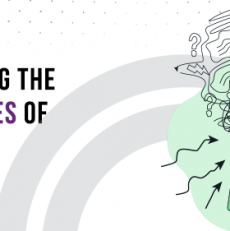
November 23, 2024
Understanding the Common Causes of Anxiety
February 25, 2022 - admin

About Lupus
Lupus is an autoimmune disorder, also known as “the great imitator, " mimics other diseases and conditions. Lupus affects people who are never similar, every patient experiences different levels of disorder.
It causes skin inflammation, and sometimes the symptoms may include anything and everything from a rash to neurologic problems. Diagnosing Lupus can be tricky for doctors, and therefore many times, patients live with Lupus for many years before it can actually get diagnosed.

Lupus may affect different organs of your body and hence its symptoms may vary from person to person. Mainly it is observed that women are more exposed to Lupus and between the age group of 15 -55 years.
Below mentioned are some common symptoms that lupus patients experience –
It is often noticed that these symptoms become worse if exposed to sunlight.
Lupus are of two types - Cutaneous Lupus and Systemic Lupus
Cutaneous Lupus is the most common form of Lupus that only causes skin inflammation. In this kind, a patient loses hair, develops sores & rashes all over the body, especially on the face, neck, and scalp.
In Cutaneous Lupus, patients develop a different discoid rash that appears on the nose and cheeks. Discoid rashes are scaly circles generally raised and red.
Systemic Lupus is a rare type occurring in only 5 percent of lupus cases. In this kind of Lupus, patients develop external rashes and inflammation in the blood vessels and inner organs.
The effects of systemic Lupus can be mild or severe, but the severe ones lead to cardiovascular damage and nervous system and kidney complications.
Cutaneous Lupus is the most common form of Lupus that only causes skin inflammation. In this kind, a patient loses hair, develops sores & rashes all over the body, especially on the face, neck, and scalp.
In Cutaneous Lupus, patients develop a different discoid rash that appears on the nose and cheeks. Discoid rashes are scaly circles generally raised and red.
Systemic Lupus is a rare type occurring in only 5 percent of lupus cases. In this kind of Lupus, patients develop external rashes and inflammation in the blood vessels and inner organs.
The effects of systemic Lupus can be mild or severe, but the severe ones lead to cardiovascular damage and nervous system and kidney complications.

If Lupus is left untreated, it may lead to permanent damage if some organs or sometimes lead to death.
1. Omega 3 rich diet
Patients suffering with Lupus must include oily fish in their diet or one may take Omega 3 fatty acids supplements that are available in the form of capsules. It will improve lupus symptoms.
2. A dose of Herbs
Ginger and Turmeric are both good in soothing inflammation of organs. They are also known to increase your immunity and help you get strong from within.
3. Increase your Vitamin D & Calcium intake
Lupus thins your muscles and weakens your bones, increasing your daily intake of calcium and vitamin d.
4. Mind-body relaxing technique
The stress that lupus patients undergo is at a different level. It is essential and beneficial that patients undertake mind-body relaxing techniques to soothe their bodies, relax their minds, and let them sleep and heal from within.
Adapting specific natural ways to heal yourself alone with naturopathy is fine, but do not wait and let things get worse. One should get in touch with a medical Expert. If you want to seek some personal advice, then Doctor Dorrit is available in his clinic to help you out.
Tags:


Leave a comment